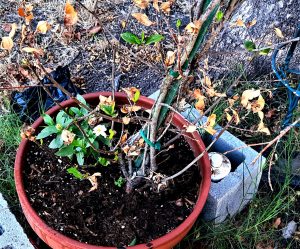I’m the kind of person that slogs through the online queues for hours, looking for the best deal on the newest phone that I can get without spending real money. I open a dozen browser windows, strain to read the fine print, compare indecipherable gibberish describing unfathomable features, and hit a few unboxing videos in a vain attempt to educate myself. In the end, I buy the first model at which I looked, the cheap one from three years ago, with middling reviews and a dubious promise of a ‘good’ battery life.
My last outdated purchase came by mail during the earliest phase of the pandemic lockdown when the phone stores had closed and their employees had fled to safer climates. That one replaced an older model bought in Kansas City two or three years before I moved. I had listened to the salesperson describe a slick fancy model, and then touched the scaled down version with last year’s features. This one will do just fine. He shrugged and let his eyes glaze.
This morning, I glanced at my phone an hour after leaving home. My stomach clenched. For the last few weeks, the battery had been draining within two or three hours of its overnight charge. I sat in my car outside the eye place, still a bit sour from the worst customer service imaginable. Could I stomach a trip to the Verizon store? My phone beeped and began to fade. With only five percent battery remaining, at 10:45 a.m. today, I drove across town.
For a moment, I thought it had moved. The stark walls and empty hollow sound which greeted my opening of the door confused me. But a slender young man with a broad grin crossed from the counter. Don’t worry, he soothed. We’re just remodeling. I glanced at the bare walls, the two lonely benches against the windows, and the bereft sockets with nary a device in evidence. But he seemed sincere. I approached him, held out my phone, and explained the problem. He smiled. My faith inched upward a notch or two.
We talked about phones. He logged into my account. His supervisor looked over his shoulder and made a comment that I didn’t catch. A conversation began among us. They offered choices. They suggested models. They checked their stock. They reviewed my plan. When the version on which we agreed proved absent from their inventory, they found a way to give me a similar deal on the better device. Then we talked tablets, and I went out to the car for my ragged case and my five-year-old eight-inch. Another deal unfolded; another clerk came on duty; the supervisor went to lunch.
We began the data transfer. Then I went to get a sandwich. When I returned, my original agent mentioned that I had 400 videos on my old phone. Oh, you didn’t have to transfer those, I save all those to Google Photos!, I told him. But the transfer had gone to the point of no return. And another clerk had come on duty.
Other customers came and went. But the five of us remained: Me, and Jesus, and Shannon, and Kyle, and Roberto. Kyle went on the internet and looked at my YouTube channel. I told a few lame jokes about folks in their sixties and how we abuse technology. I asked about their plans for the future, their home towns, and how they liked their jobs. A lady came into the store and we all cheerfully greeted her. She joined our little club for a few minutes, long enough to make a purchase. She admired my walking stick and thanked the guys for finding what she wanted.
As the lady left, a little group of guys who seemed to only speak Spanish entered. The bilingual Roberto assisted them. When they had finished their business and gone, we chatted about the new decor, and how much nicer the store would be when the old counter got hauled away. I admired the fresh white paint on two of the walls. Then we all stood looking at my phones for a while, watching the percentage of transfer increase, until it hit 99%. A hoorah rose unbidden from us all.
At four o’clock, a solid five hours after I had first parked in front of the store, I shook each of their hands, and exited the store with a new phone, a new tablet, and a new appreciation for the young people of Lodi, California. A half-mile outside of town, I slowed for what appeared to be a devastating car accident. As I passed, I crossed myself in an unrelenting old habit, and thanked the divine, the universe, and the guys at the Lodi Verizon store, that I had not been on Highway 12 when a truck breached the center line and scattered a half-dozen unsuspecting vehicles into the ditch.
It’s the twenty-sixth day of the one-hundred and fourth month of My Year Without Complaining. Life continues.
- Kyle, Shannon, & Roberto
- Jesus & Shannon



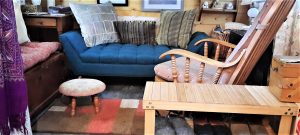
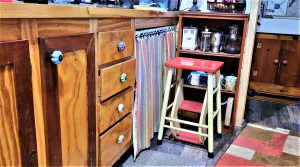
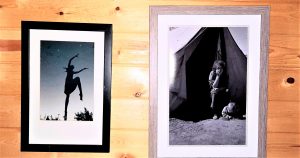
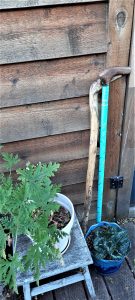 Long hours of my childhood surrendered to words dancing across the pages of Readers Digest Condensed Books sent to my family by Grandma Corley. On any given night, I’d prop my pillow against the headboard and click a flashlight to illuminate pages in the darkness of the silent house. I started devouring these volumes as early as nine or ten. I didn’t quite understand the concept of ‘condensed’ books until eighth grade, when I got to peruse the library shelves without much supervision.
Long hours of my childhood surrendered to words dancing across the pages of Readers Digest Condensed Books sent to my family by Grandma Corley. On any given night, I’d prop my pillow against the headboard and click a flashlight to illuminate pages in the darkness of the silent house. I started devouring these volumes as early as nine or ten. I didn’t quite understand the concept of ‘condensed’ books until eighth grade, when I got to peruse the library shelves without much supervision.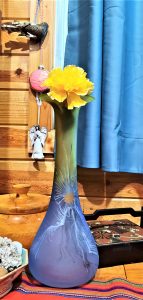 I spent most of today lingering in the narrow strip of gloomy grey between self-pity and despair. The normal vagaries of daily existence overwhelmed me, as I clutched my back and doubled over on the short walk from house to car. A half-hour wasted online struggling to convince the Instacart ordering system that I don’t live in Arizona sapped what little strength I had managed to reclaim with constant ingestion of Naprosyn.
I spent most of today lingering in the narrow strip of gloomy grey between self-pity and despair. The normal vagaries of daily existence overwhelmed me, as I clutched my back and doubled over on the short walk from house to car. A half-hour wasted online struggling to convince the Instacart ordering system that I don’t live in Arizona sapped what little strength I had managed to reclaim with constant ingestion of Naprosyn. 